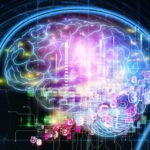Artificial Intelligence Lands on the White House
Experts from the Obama administration are debating on the consequences of robotization. The OECD (Organization for Economic Cooperation and Development) expects automation to replace on average 9% of jobs.

Last Tuesday, May 24, the White House convened a group of experts who met at the Washington University School of Law to debate on the impact of robotization on employment. In parallel, the OECD published a report, The Risk of Automation for Jobs in OECD Countries, which highlighted that the so-called fourth industrial revolution, automation, will replace on average 9% of jobs.
In the United States, according to a study by the University of Oxford, 47% of jobs are at risk. Although the data is for 2013, robotization is an unstoppable phenomenon. In the United Kingdom, the BBC published a report that claimed that 35% of jobs will be replaced and launched the simulator Will a robot take your job?, which shows what jobs will be lost to robotization.
Back in Washington, the meeting with experts in artificial intelligence is the first of four workshops that according to the White House Chief Technology Officer, Ed Felten, aim to discuss the possibilities and challenges of artificial intelligence. According to Felten: “Today's challenge is how to ensure that AI continues to be safe, controllable and predictable while it becomes more intelligent".
Ryan Carlos, Law Professor of Washington University, said that citizens “should know what we mean when we talk about artificial intelligence”.
Another speaker, the CEO of the Allen Institute for Artificial Intelligence, Oren Etzioni, pointed out that “we are still in the Middle Ages in machine learning". Today, artificial intelligence works for well-structured problems such as board games and driving on highways. But can it contribute to make human life safer and more efficient? People die every year because AI is not used properly at hospitals. In people, intelligence and will go hand in hand, something that is not yet happening with machines”.
"Feed the machines"
Another topic discussed was how to "feed the machines”. A recent report by the White House pointed out the potential for discrimination in storing large volumes of data that is classified following a biased pattern.
Artificial intelligence, said Bryant Walker Smith, Law Professor of the University of South Carolina, is used to make immediate decisions on how, for example, an autonomous car avoids a collision. The problem is how to regulate these technologies that are being deployed.
In the coming months, the White House experts are planning to continue debating on the limits of artificial intelligence. Meanwhile, going back to the OECD, workers should not forget that the process of automation of society is "slow" and there is time to adapt to change, since more creativity and talent will be needed.
According to the OECD, it is important to open the debate and leave aside the fatalistic vision of "technological unemployment" that accompanies artificial intelligence and its deployment.